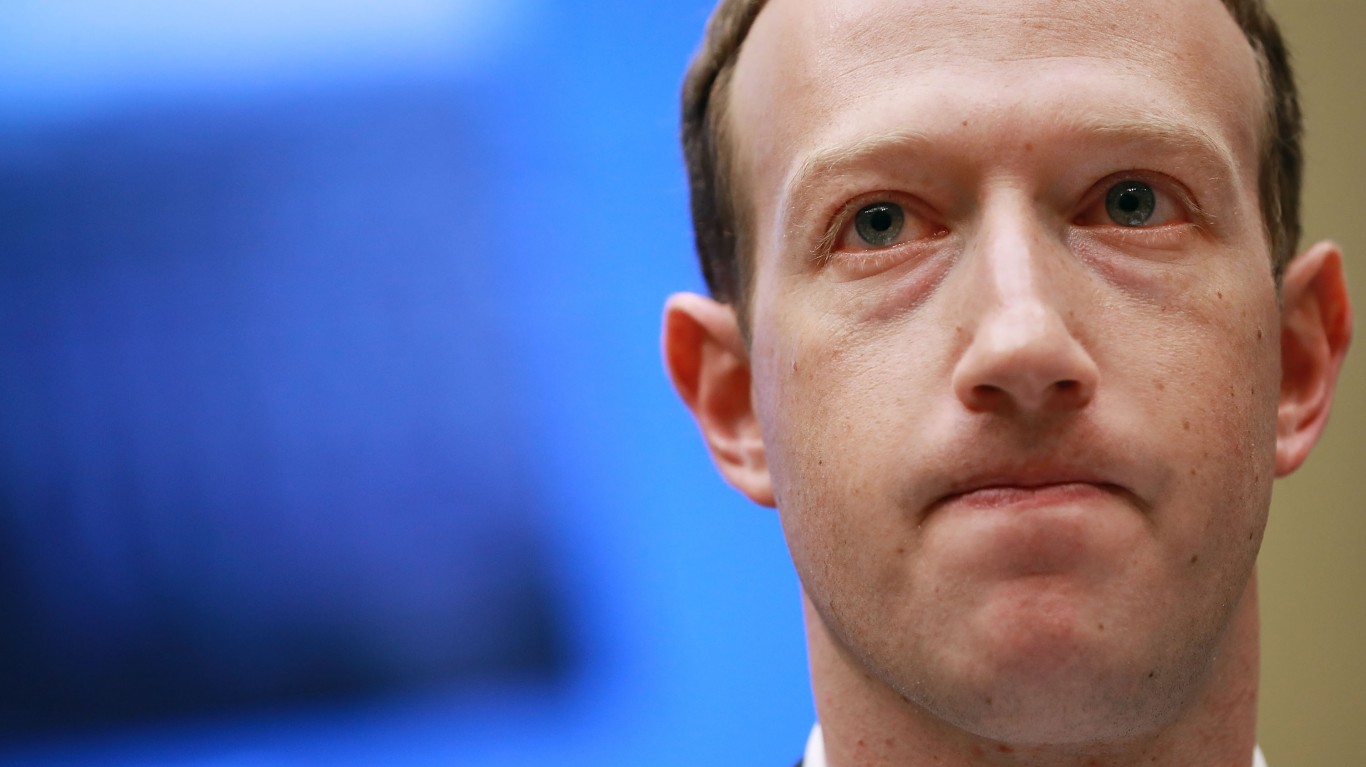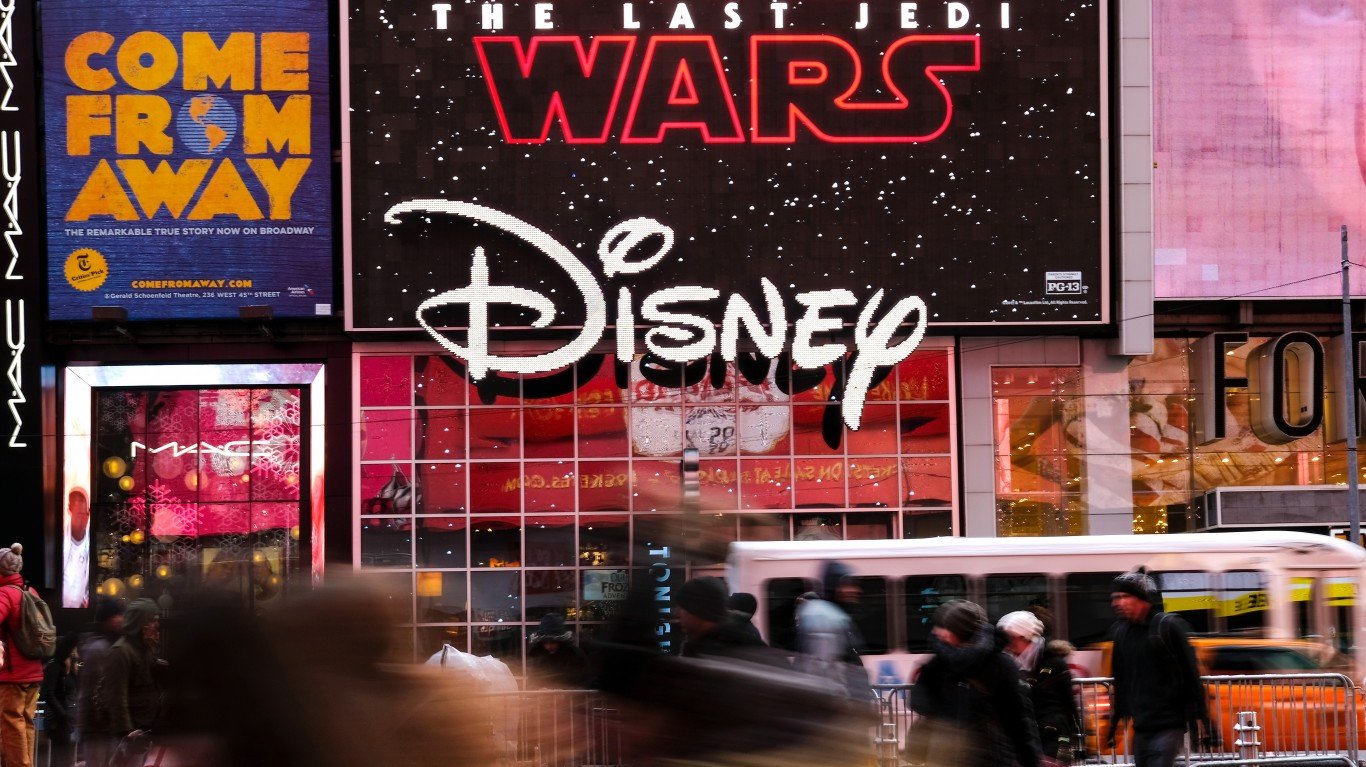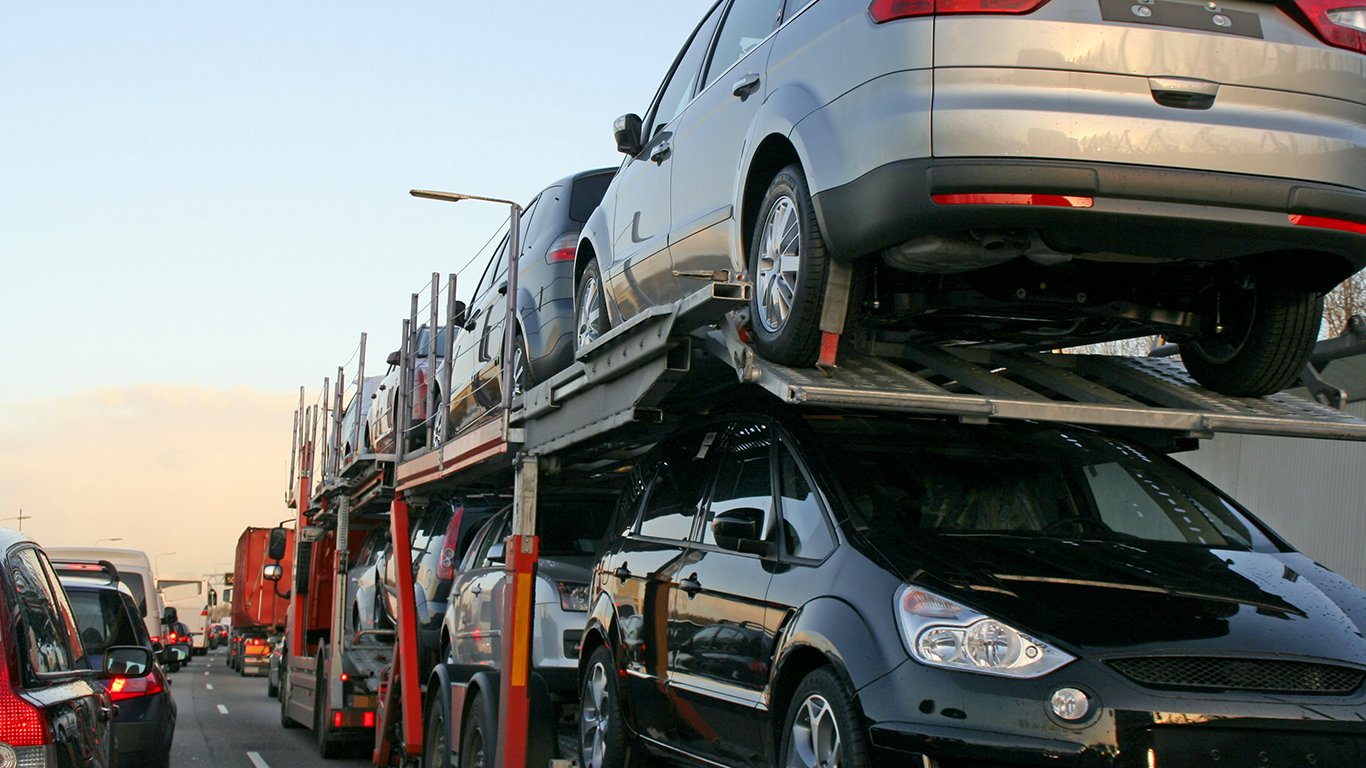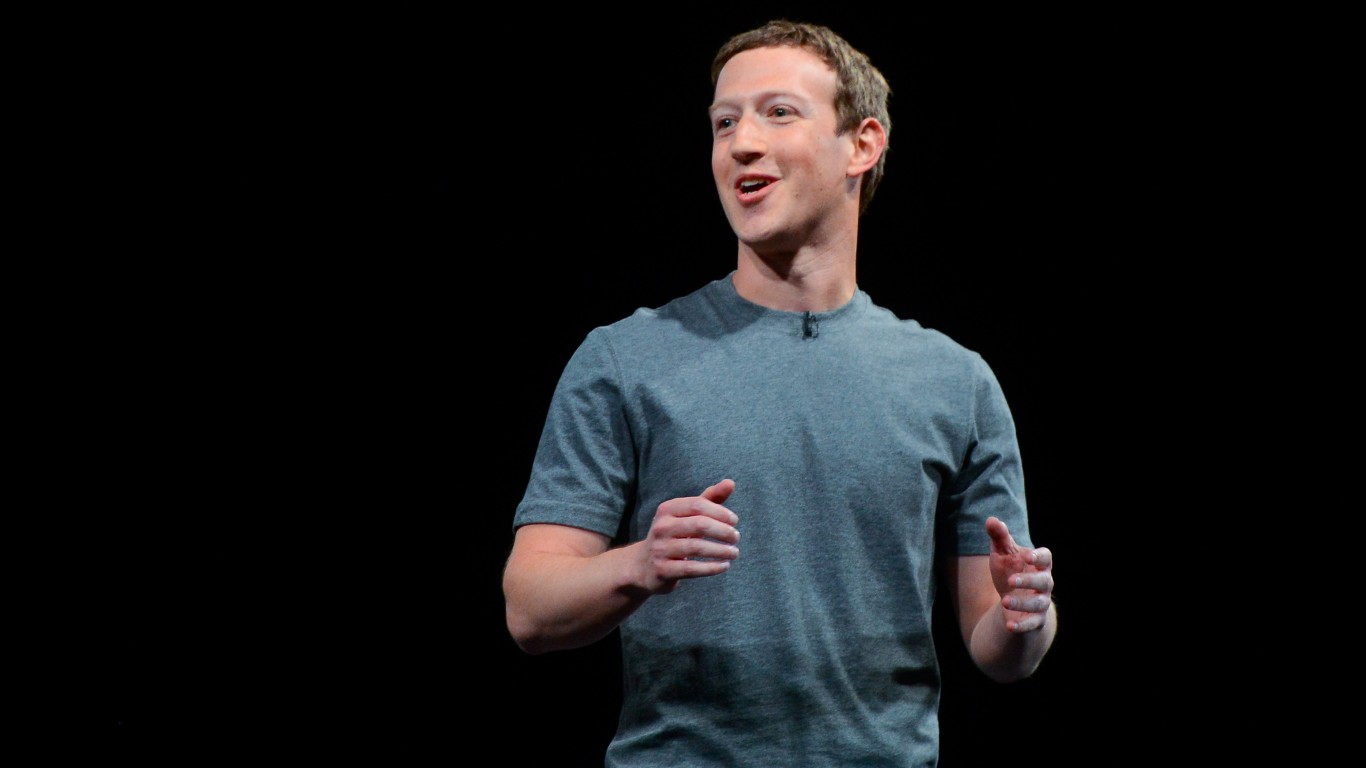

24/7 Wall St. reviewed some of the greatest recent product launch blunders to identify the biggest product flops of the decade. We selected these products based primarily on the expectations that companies, investors, and consumers had placed in them – and how far short they fell. The products cover a range of industries, including tech, auto, fashion, media, and food, and are ranked in no particular order other than the year of their launch. (Here’s a list of the biggest food and drink flops in recent history.)
Products fail to resonate with consumers for lots of reasons: inability to find a niche in a crowded field; failure to offer something new or different; ineffective advertising or promotion; some kind of scandal or problem associated with the item…. Or sometimes, they’re just not any good. (That was also probably the case with these 29 absurd military projects that were canceled almost immediately.)
No company has been immune to failure. The most celebrated product blunder ever was probably Ford’s launch of the Edsel, an automobile vilified by critics as soon as it rolled off the assembly line in 1958 for both its styling and its overall low quality.
Many of the products facing consumer scrutiny today have been developed by America’s premier technology companies. They all have suffered the ignominy of product failure and had to account for the loss in research and development costs on their balance sheet.
Click here to see the 25 biggest product flops of the last 10 years.
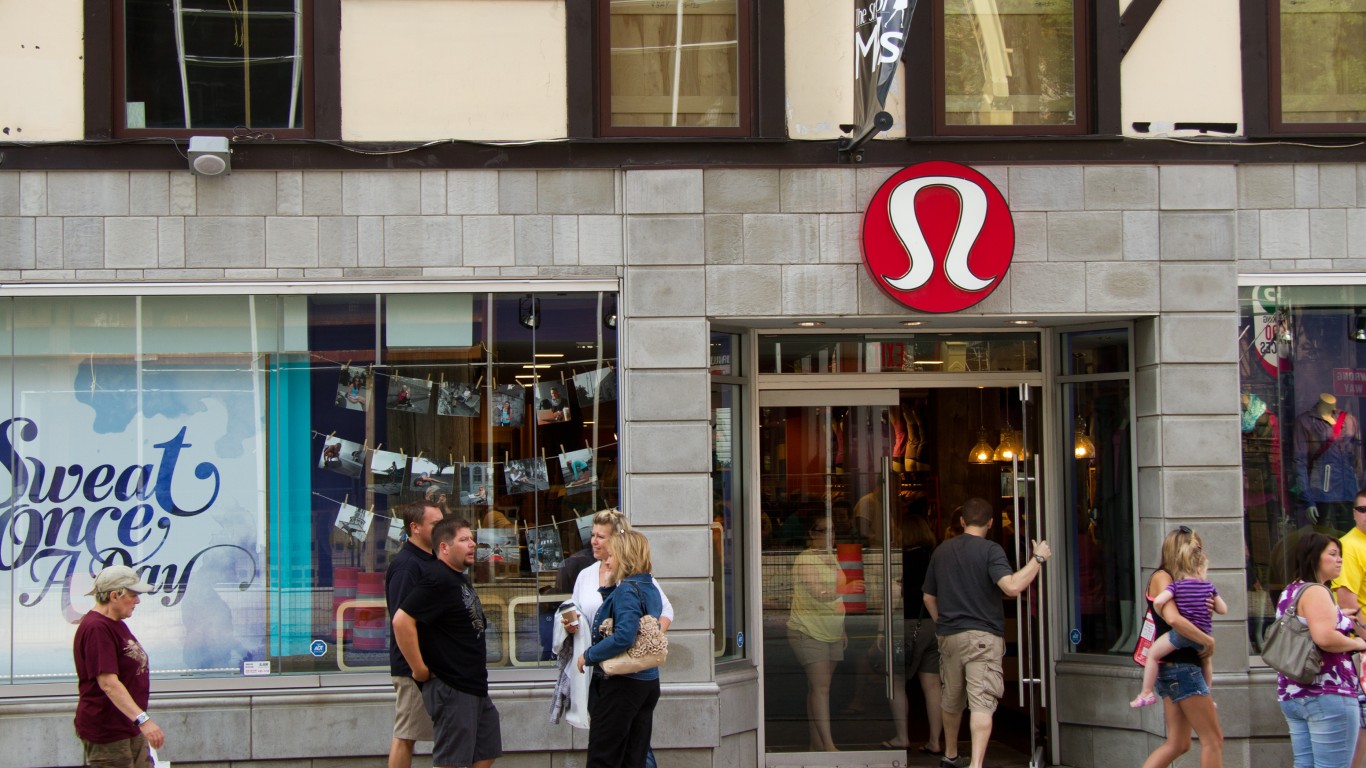
1. Astro Pants
> Company: Lululemon Athletica
> Year introduced: 2013
> What it was: Yoga pants
Astro Pants marked a major misfire for women’s athleisure brand lululemon. The form-fitting yoga pants became effectively translucent when wearers bent over. The gaffe resulted in the Vancouver-based company recalling 17% of its yoga pants and an estimated $67 million in lost revenue. Even after the company attempted to address the issue, problems remained with customers complaining that the pants, which sold for about $100 a pair, were still too sheer.
[in-text-ad]
2. Google Glass
> Company: Alphabet
> Year introduced: 2013
> What it was: Wearable technology
Google first announced Google Glass — an eyeglasses-shaped head-mounted display with smartphone capabilities — to the public in 2012. The announcement began with a statement of principle: “We think technology should work for you — to be there when you need it and get out of your way when you don’t.”
After two years of disappointing sales, it was clear consumers did not need Google Glass. Google stuck to its principle, and in 2015 discontinued the product’s development. Privacy concerns, reported bugs, low battery life, bans from public spaces, and an inability to live up to the hype all stymied public adoption of the technology.
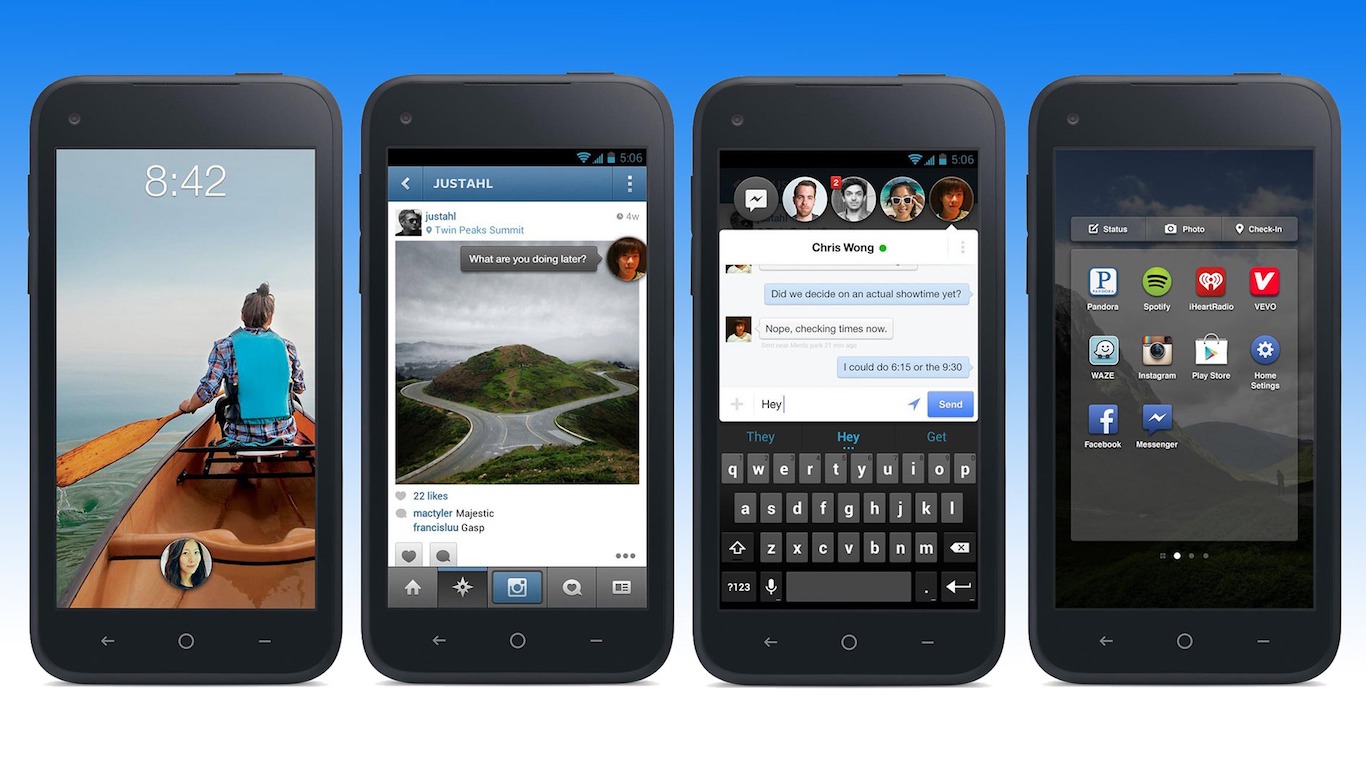
3. Home
> Company: Facebook
> Year introduced: 2013
> What it was: Mobile phone app
The Facebook Home is an example of the Silicon Valley social-media giant overreaching. With surging mobile phone use and social-media engagement, Facebook in 2013 launched a family of apps that combine these trends. Facebook Home converts the home screen of a smartphone into the Facebook news feed. While most of Facebook’s more than 1 billion users log in to their accounts on a smartphone, the social-media giant’s product never caught on. Early users cited clunky operation, the inability to toggle between Facebook Home and the original phone interface, and lack of options for customization, among other snags.
4. Satisfries
> Company: Burger King
> Year introduced: 2013
> What it was: Food
In 2013, Burger King introduced a menu item advertised as a healthy alternative to the chain’s traditional French fries. By using a less porous batter, Satisfries absorbed less oil than regular fries during cooking. While Satisfries were made with a healthier recipe, Burger King failed to convey the difference to customers. The fries also were more expensive than Burger King’s regular French fries and failed to gain appeal from consumers. The company discontinued the fries in 2014, less than a year after they were introduced.
[in-text-ad-2]
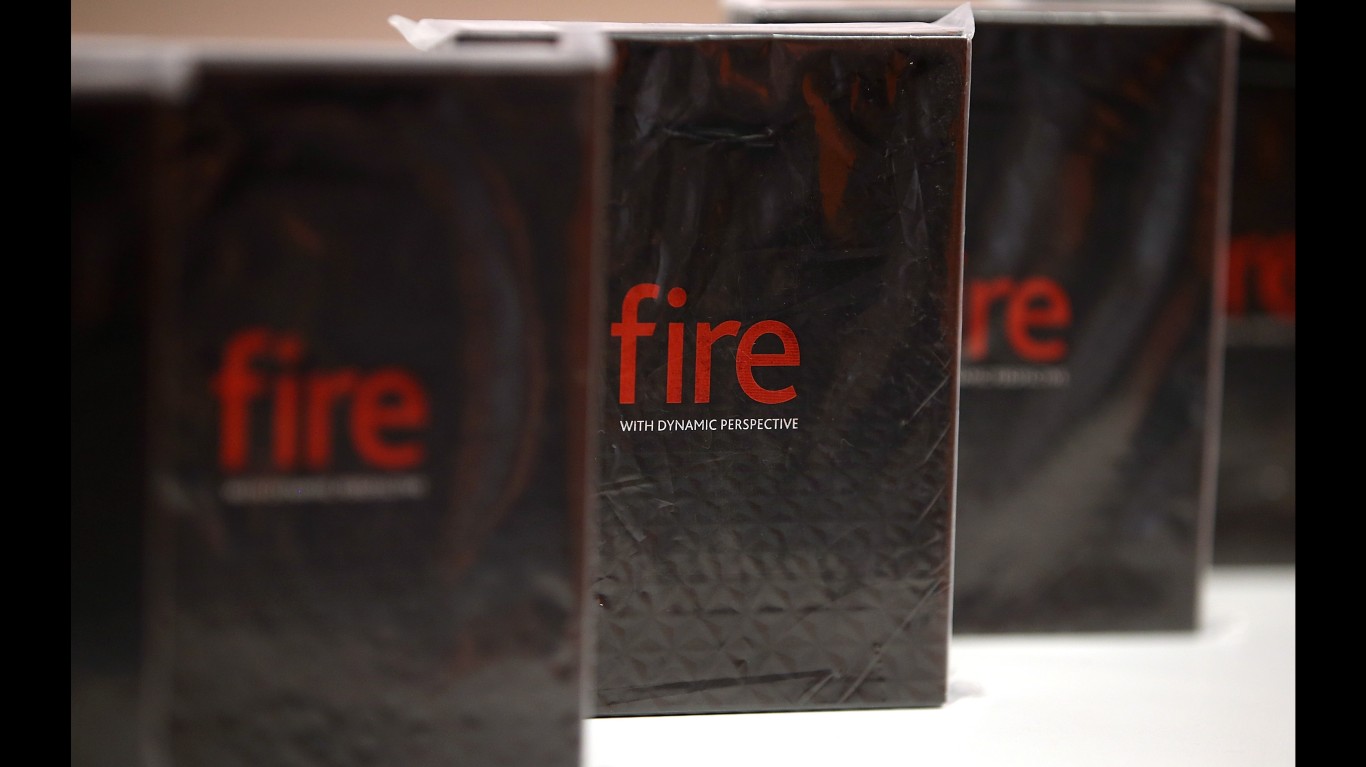
5. Amazon Fire Phone
> Company: Amazon
> Year introduced: 2014
> What it was: Smartphone
E-commerce giant Amazon does many things well, but making smartphones apparently is not one of them. The company released its Amazon Fire Phone in 2014 — and just 13 months later, the initiative was scrapped. The device’s failure was attributable to several factors. It did not offer as many apps as competitor devices — just 240,000 compared with more than a million available to Android users. It also came late to a crowded market as the iPhone was already in its eighth generation. Additionally, the phone’s unique features were geared more to encourage users to make more purchases on Amazon than to their actual needs.
Just months after the phone’s announcement, Amazon reportedly had $83 million worth of phones in inventory, and the company was forced to take a $170 million writedown charge on costs associated with the device.
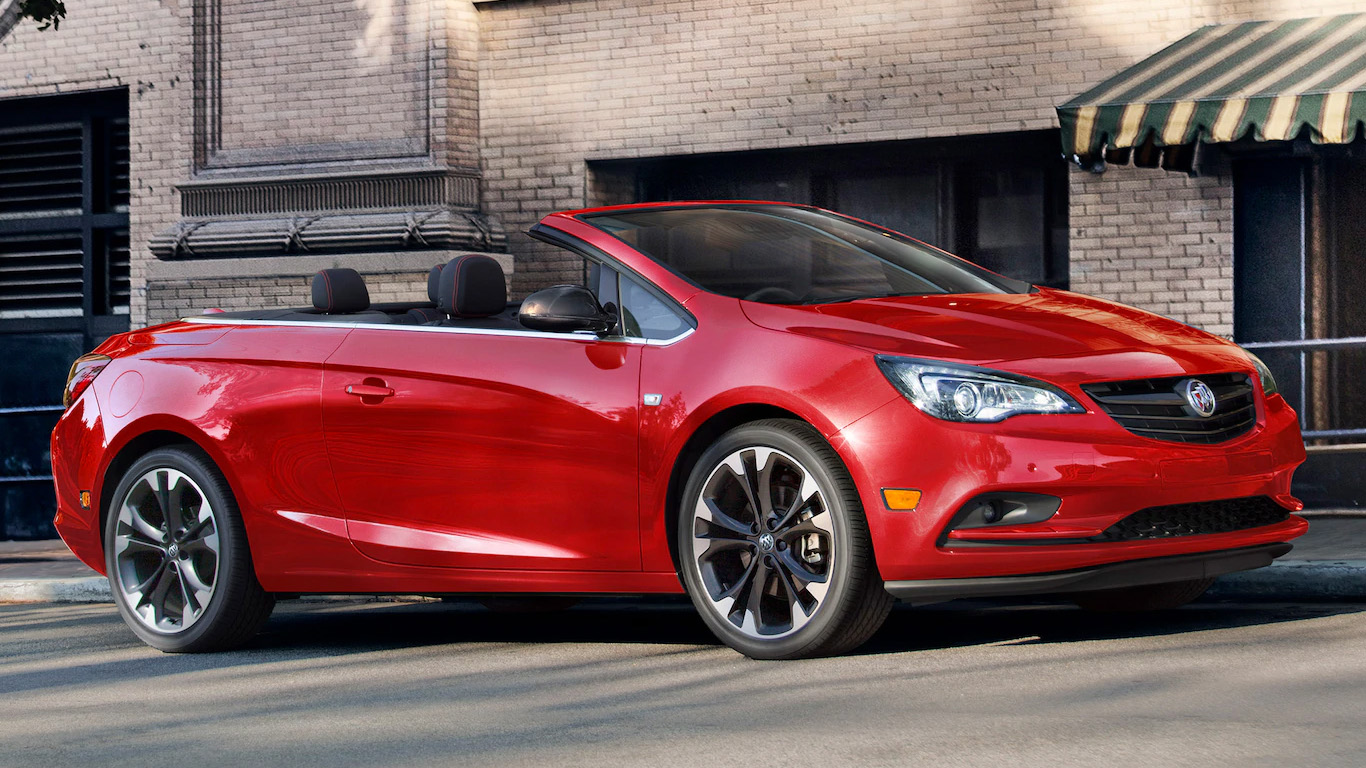
6. Cascada
> Company: General Motors
> Year introduced: 2016
> What it was: Convertible
Buick, a division of General Motors, introduced the Cascada, a 200-horsepower convertible, in 2016. The Cascada featured a powered-retracting roof and LEDtaillights and headlights. The vehicle appealed to drivers living in sunny climates, but apparently not to many other consumers. Sales dropped every year from its launch in 2016.
Its fate was sealed in 2019 when Opel, which built the turbocharged vehicle, was sold to France’s PSA Group. The manufacturers announced plans to discontinue three car models, and the Cascada was one of them.
[in-text-ad]
7. Galaxy Note 7
> Company: Samsung
> Year introduced: 2016
> What it was: Tablet phone
Samsung, which recently overtook Apple in the smartphone market, also had one of more recent product flops. The Note S7, a tablet phone that launched in August 2016, was initially well received. However, it had a serious flaw. A problem with the battery software resulted in the phones catching fire on several occasions, including once on a Southwest Airlines flight, which had to be evacuated. Soon, the Department of Transportation made it illegal to bring a Note 7 on a commercial flight. By October, after an extremely expensive recall, Samsung suspended production of the Note 7 worldwide. The company lost billions of dollars due to the debacle.

8. Juicero
> Company: Juicero
> Year introduced: 2016
> What it was: Appliance
When Juicero launched in 2016, it was billed as the first at-home, cold-pressed juicing system. The Wi-Fi connected appliance came with a price tag of $699, and all users had to do for a glass of juice was put a prepackaged “product” into the machine and press.
The product generated a lot of buzz until a Bloomberg report exposed its uselessness, as users could just as easily squeeze the 99 cent juice packets into a cup with their hands — without the aid of the Juicero. The product had had its price reduced to $399 after a few months on the market. Months after Bloomerg’s expose, the Juicero was taken off the market and customers were offered refunds.
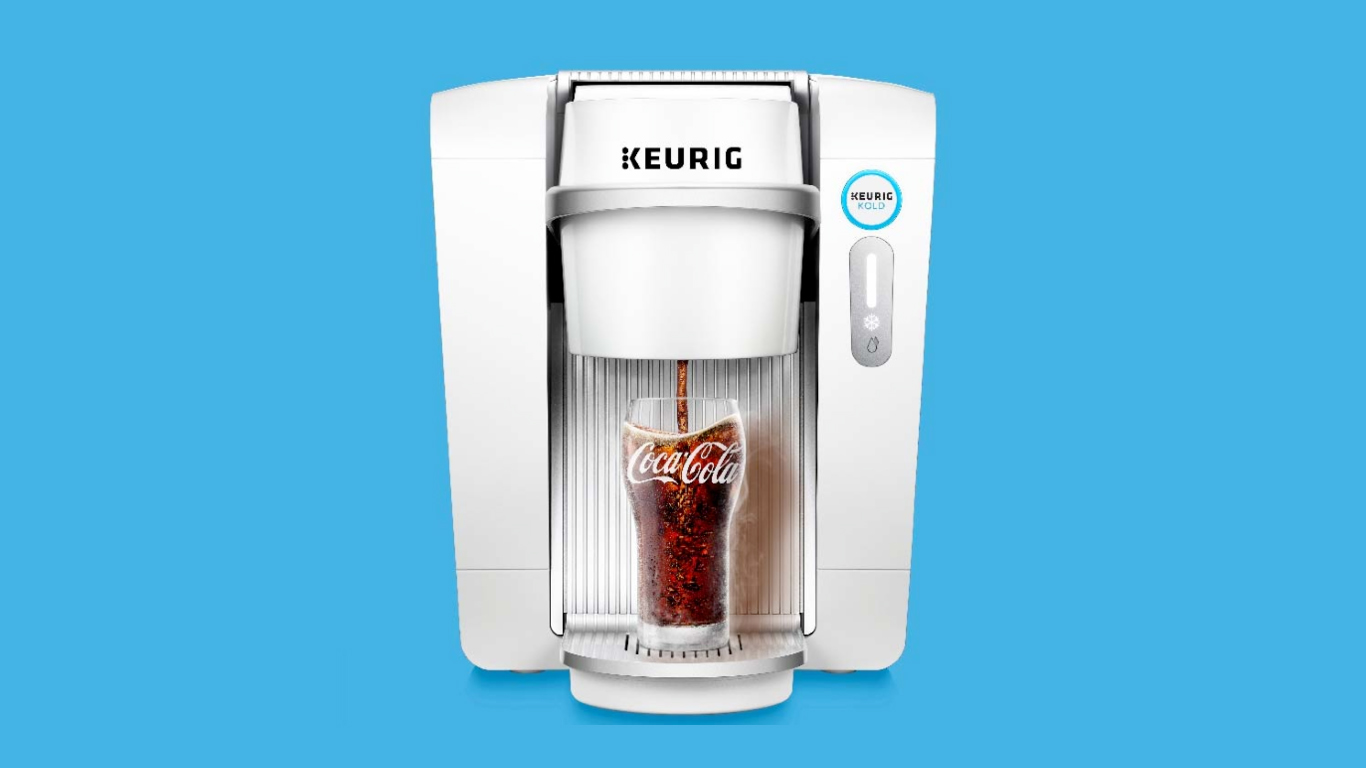
9. Keurig KOLD
> Company: Keurig
> Year introduced: 2016
> What it was: Appliance
Kold was an ill-conceived at-home soda machine from Keurig, the company famous for its coffee machines that brew by the cup through single-use pods. Prohibitively expensive for many, the Kold sold for anywhere between $299 and $369, depending on the retailer and pods, which produced 8 ounces of soda and cost several dollars a piece. The idea, meant to extend Keurig’s market reach beyond coffee, came at an odd time, as Americans began drinking less soda.
Still, it was enough to catch the attention of executives at Coca-Cola, a company that invested $1 billion in the project. Keurig discontinued Kold in June 2016, less than a year after its debut. In addition to its high price, the noise the machine made, its massive size, and tendency to overheat all contributed to its demise.
[in-text-ad-2]
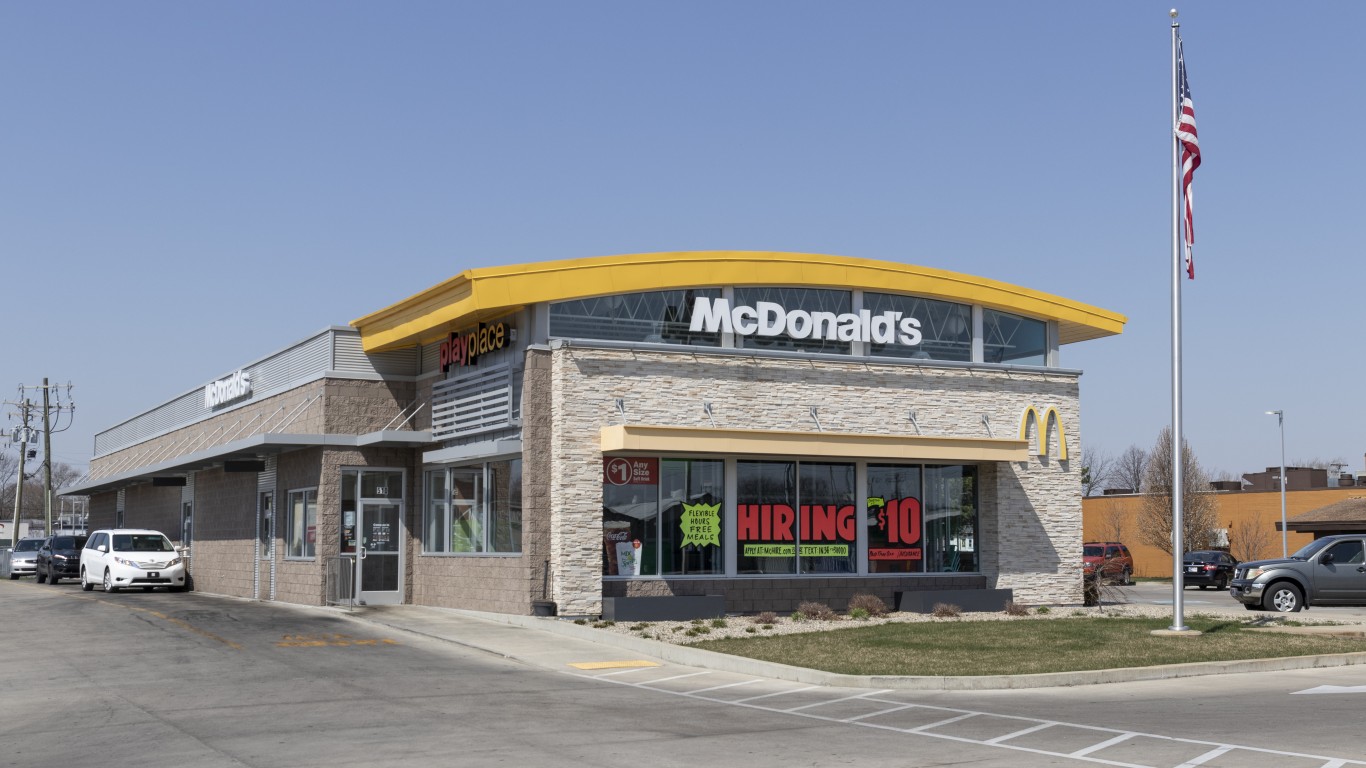
10. McDonald’s Mozzarella Sticks
> Company: McDonald’s
> Year introduced: 2016
> What it was: Fast food
Given the number of products McDonald’s has introduced over the years there are bound to be misfires, and McDonald’s Mozzarella Sticks was one of them. According to Mashed, the sticks were criticized on social media for lacking cheese. Photos allegedly showed the sticks with a hollowed-out center.
For one customer, disappointment turned to litigation and he sued the company. The suit sought class-action status claiming false advertising and breach of express warranty, among other allegations. The case was voluntarily dismissed in October 2016, without reward. Soon after, the mozzarella sticks vanished from the McDonald’s menu in North America, though they’ve occasionally appeared in Australia.
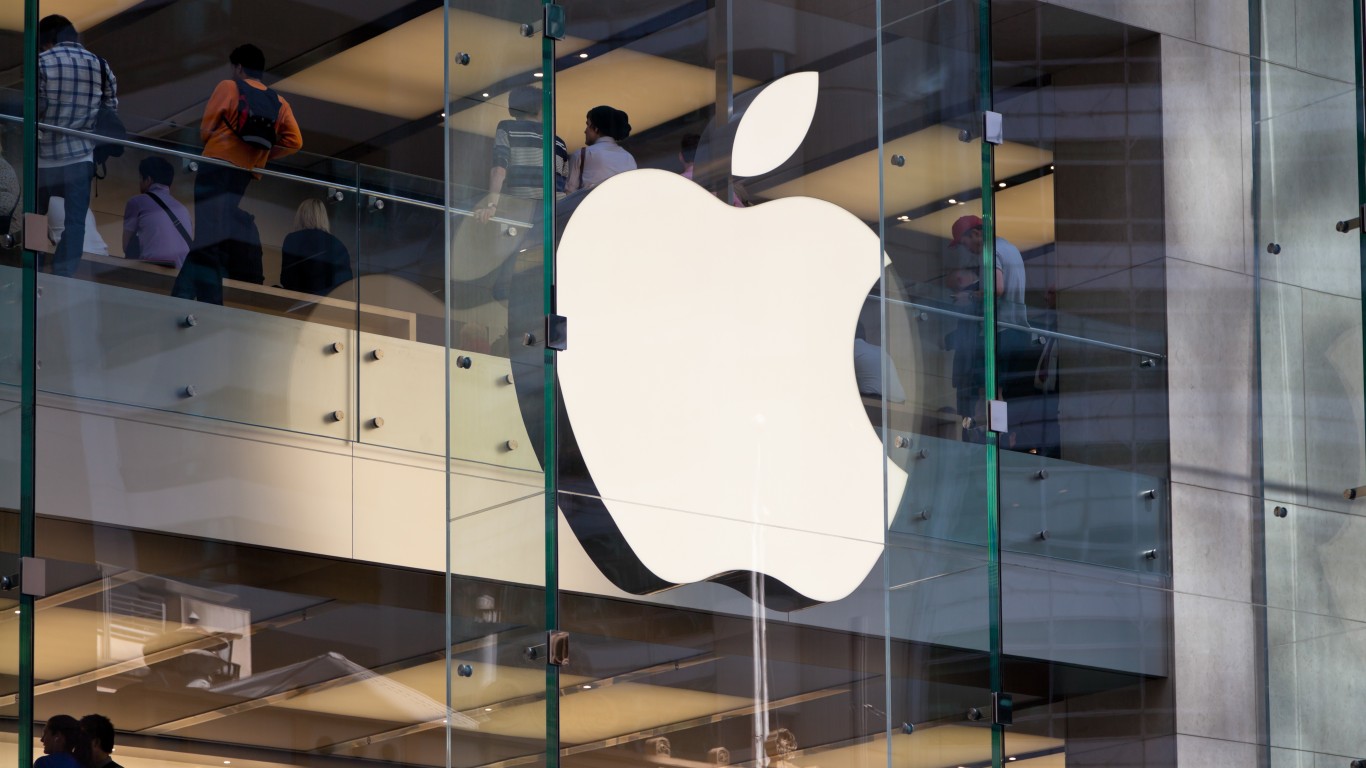
11. AirPower Wireless Charging Mat
> Company: Apple
> Year introduced: 2017
> What it was: Wireless charger mat for Apple products
Few companies have a better track record of making good on claims about their products than Apple – but its AirPower Wireless Charging Mat failed to deliver. The product was supposed to be the go-to wireless charger mat for Apple products, powerful enough to charge an iPhone X, Apple Watch, and AirPods at the same time.
Red flags started appearing when the launch was delayed by 18 months. Apple vowed to correct the issues holding up the product launch. But in 2019, it had to concede that the mat was a misfire. Apple canceled the product, telling PC Magazine that it would “not achieve our high standards.”
[in-text-ad]
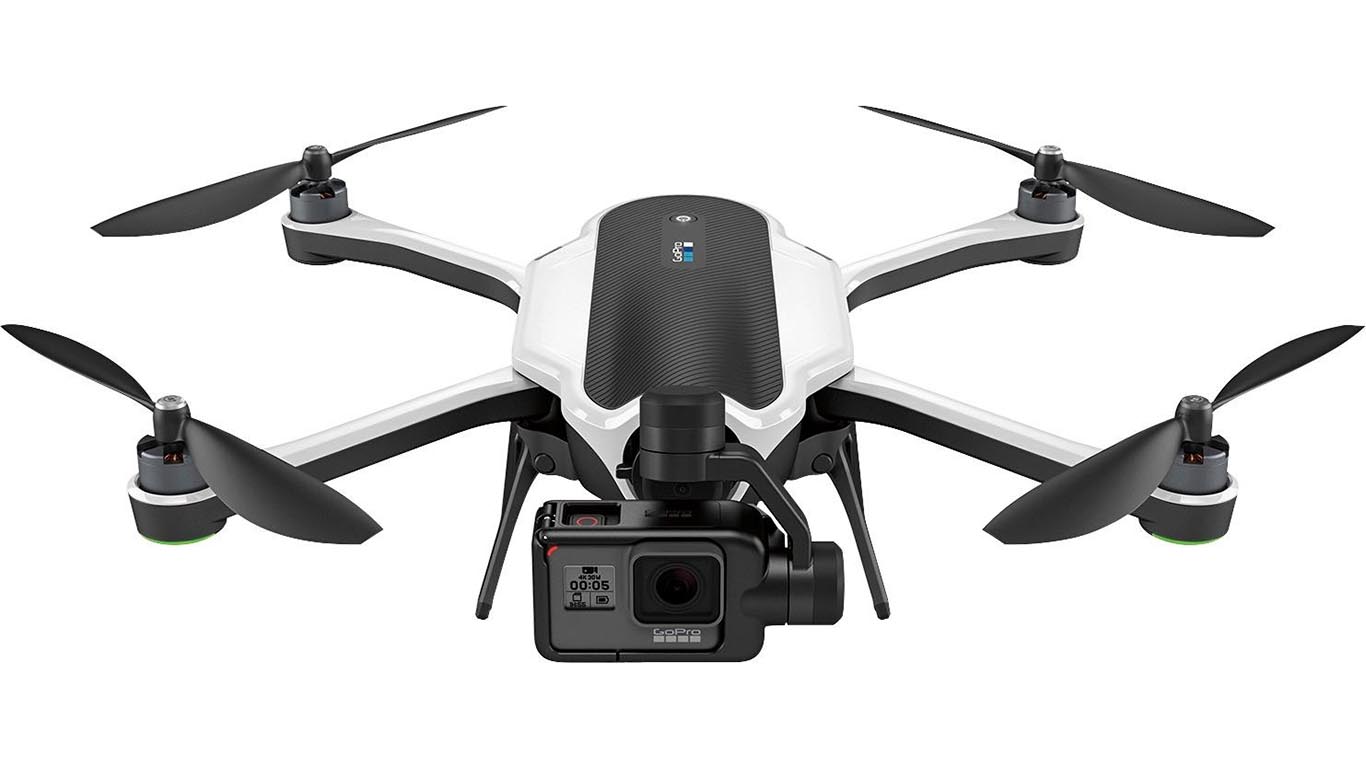
12. Karma
> Company: GoPro
> Year introduced: 2017
> What it was: Drone
GoPro, which set the standard for action cameras, had some missteps when it came to developing drones. The Karma, operated with GoPro’s Hero4 and Hero5 cameras and priced at $800, was one example..
Unfortunately for GoPro, some drones fell during flight when the battery compartment door popped open. Karma also only had 15 minutes of flying time. Complicating matters further, there were better drones on the market. Sensing the bad karma with its drone, GoPro canceled it in January 2018 after reported layoffs and disappointing financial numbers in the fourth quarter.
13. Megyn Kelly Today
> Company: NBC
> Year introduced: 2017
> What it was: TV show
In January 2017, Fox News anchor Megyn Kelly left the network after more than a decade to accept an offer from NBC to host an hour on the “Today” show. The highly publicized move was made in the hopes that Kelly would be the network’s next major star. However, nothing worked out the way Kelly or NBC wanted.
Her tenure at the “Today” show was marred by awkward moments on air and low ratings. The final straw was during an October 2018 show in which Kelly tried to explain the use of blackface on Halloween. By the end of the day she had issued an apology, but it was not enough. “Today” show veteran Al Roker and others criticized Kelly on air the following day. By the end of the week, it was clear Kelly would be let go.
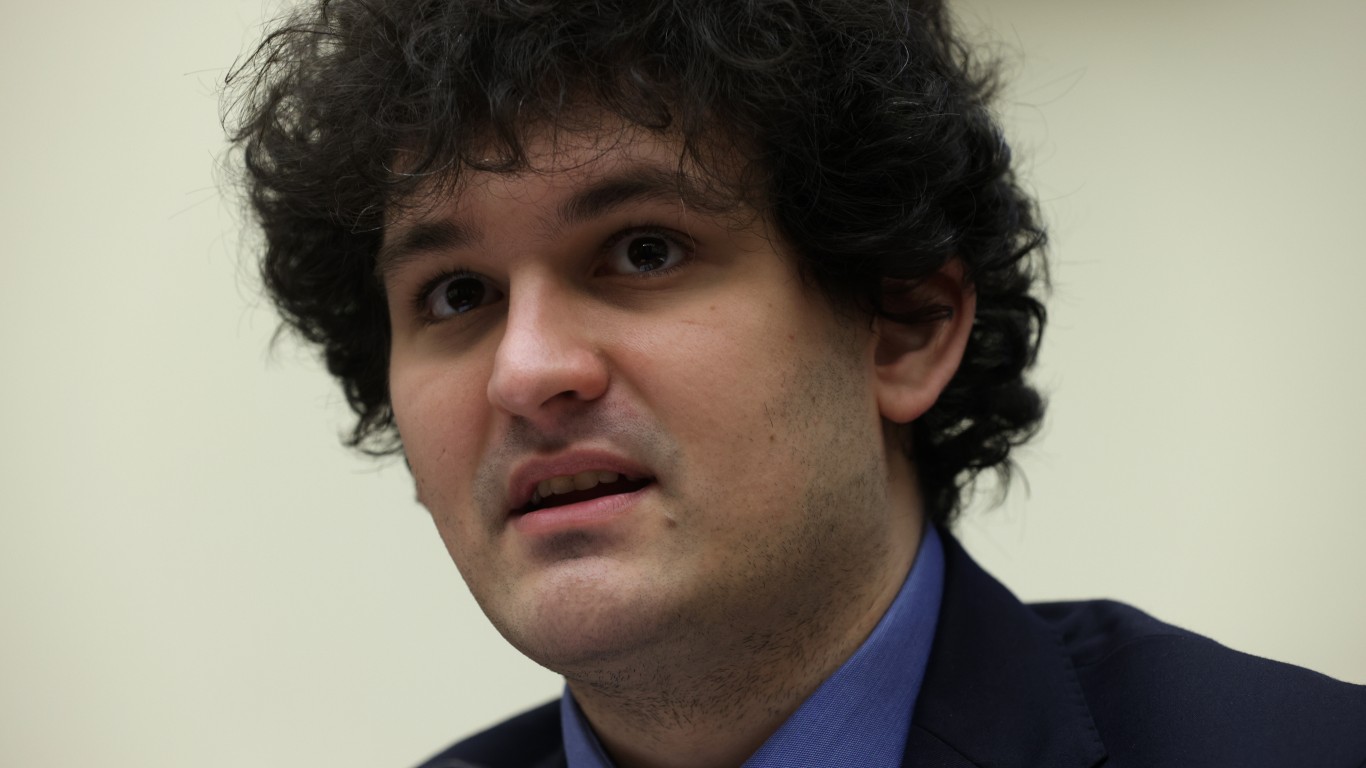
14. FTX Exchange
> Company: FTX Trading Ltd.
> Year introduced: 2018
> What it was: Cryptocurrency exchange
The cryptocurrency market was already reeling when the most spectacular financial company implosion possibly ever occurred in late 2022. FTX Exchange, founded in 2018 by MIT graduate and former exchange-traded funds trader Sam Bankman-Fried, was the third-largest centralized cryptocurrency exchange as of July 2021. In November 2022, the exchange and the companies in its circle collapsed abruptly, and Bankman-Fried resigned.
The exchange’s dissolution was attributed to “a complete failure of corporate control,” according to John J. Ray III, the new CEO of the cryptocurrency exchange. He called it an “old-fashioned embezzlement.” Investors and creditors are unlikely to get their money back. Bankman-Fried faces criminal charges connected with the sudden implosion of his billion-dollar empire and cryptocurrency exchange. He voluntarily consented to extradition from the Bahamas in December.
[in-text-ad-2]
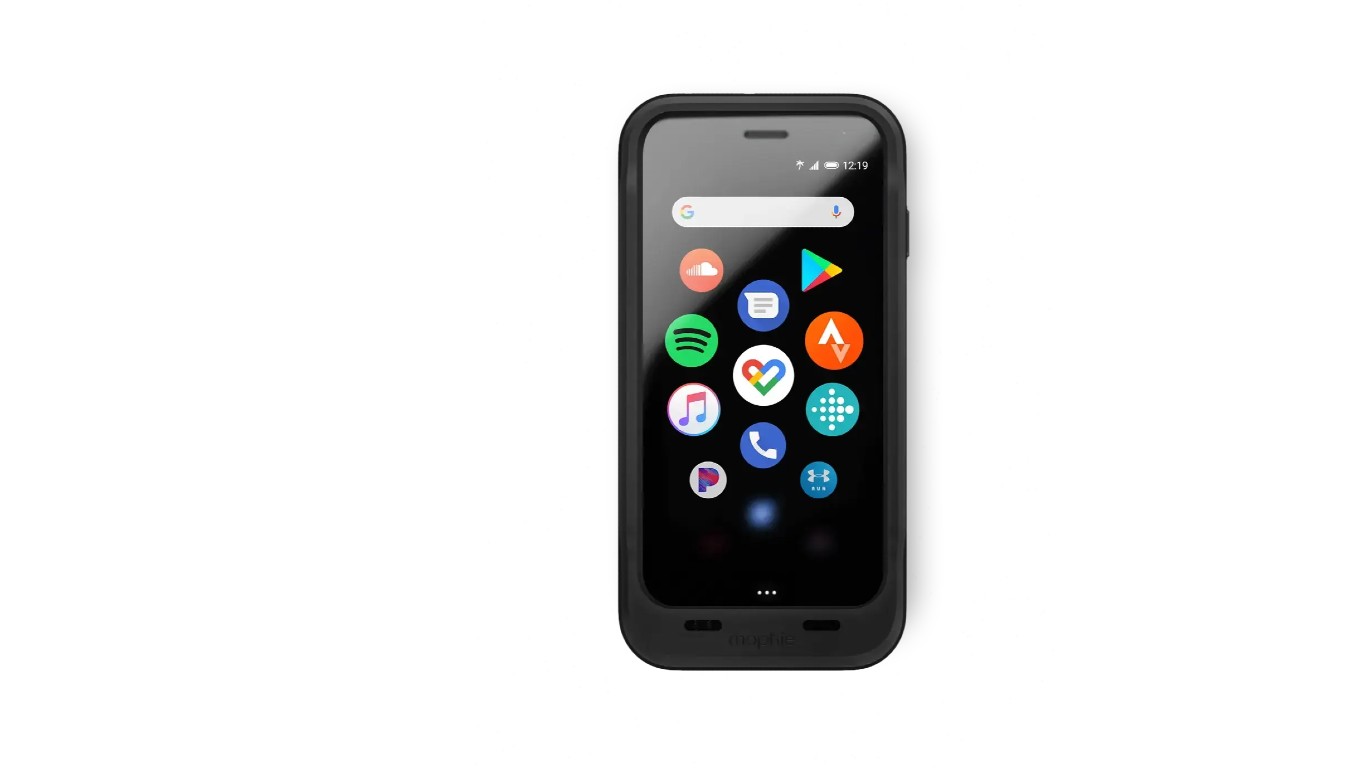
15. Palm Phone
> Company: TCL
> Year introduced: 2018
> What it was: Smartphone
The Palm phone was introduced in 2018 as a companion device — a smaller-than-typical smartphone that shares a number with the user’s primary phone. The device was criticized when it hit the market for its short battery life, subpar camera, and inefficient operating system.
The idea was that it would serve as a minimalist device for those who are constantly distracted by their smartphones — but many rightly pointed out that buying another device is a counterintuitive way to simplify. The phone originally came with a price tag of $350, but is now available as a standalone phone for less than $200.
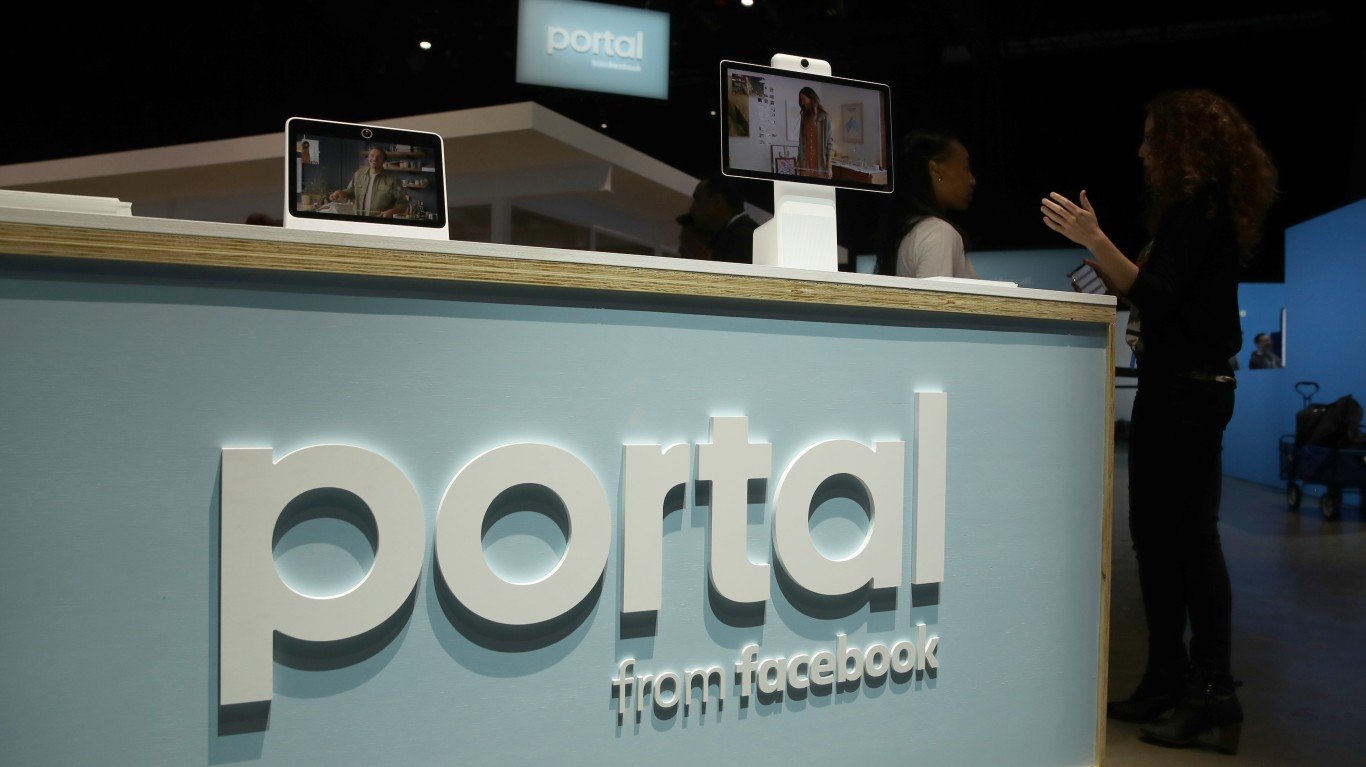
16. Portal
> Company: Facebook
> Year introduced: 2018
> What it was: Webcam
Few were surprised when business news magazine Fast Company reported in October 2019 that sales of Facebook’s smart display communication device, Portal, were “very low” — and that is despite a considerable price reduction. Initially costing $199 or $349, depending on the model, prices now range from $129 to $279.
Even before evidence emerged that the Portal was a commercial flop it was already a critical failure. Upon its 2018 release, reviews of the device were anywhere from icy to outright hostile, questioning the need for such a device while also pointing out that, in the wake of Facebook’s Cambridge Analytica scandal, giving the company access to a camera in your home may not be the best idea.
[in-text-ad]
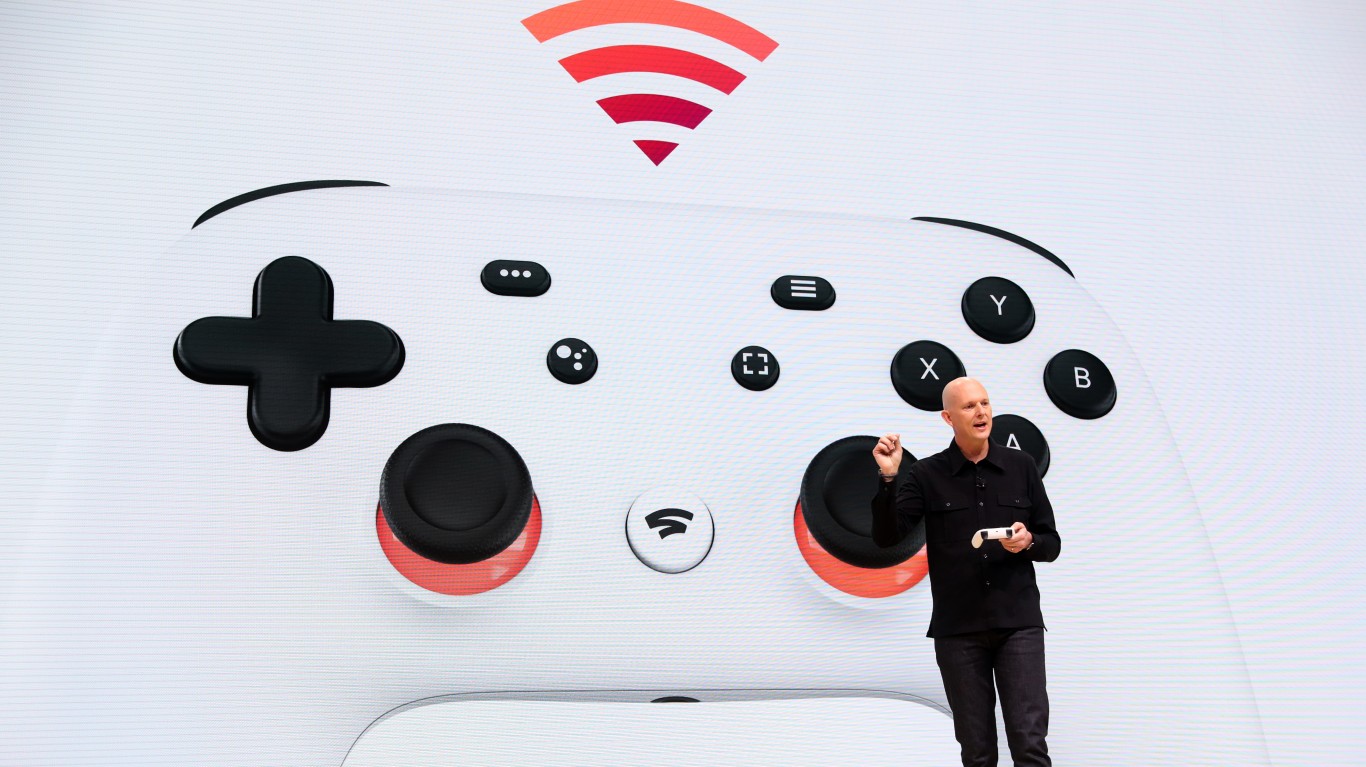
17. Google Stadia
> Company: Alphabet
> Year introduced: 2019
> What it was: Cloud gaming service
Google Stadia promised to revolutionize gaming when it was launched in 2019. Players would be able to access games anytime and anywhere, without downloads or installations. But problems haunted the platform, among them a lack of stability and reliability. The service crashed often. When it didn’t, there were significant lag times. The game selection was limited as well.
In October 2022, Google announced it was closing its Stadia cloud gaming service and would refund all players for all Google and Stadia store hardware, content, and add-on purchases.
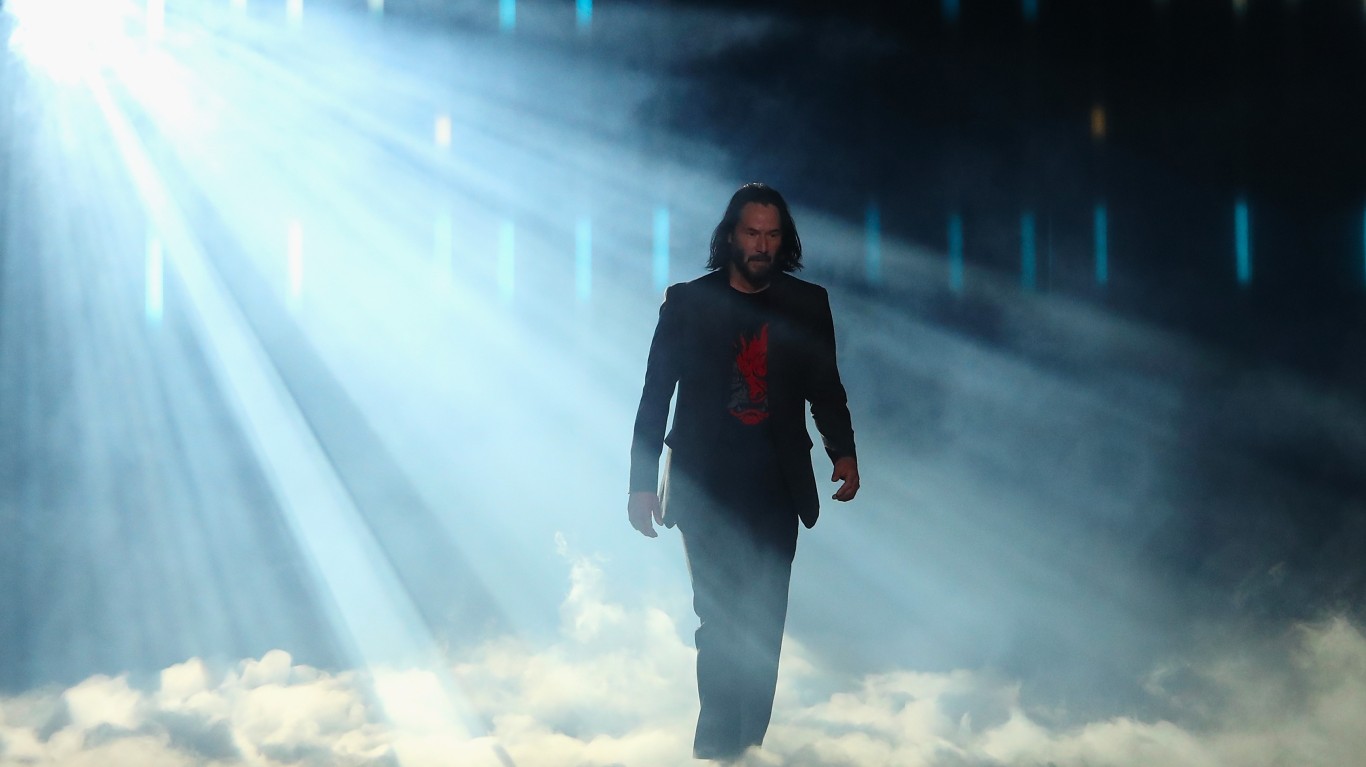
18. Cyberpunk 2077
> Company: CD Projekt Red
> Year introduced: 2020
> What it was: Video game
Even with action-film actor Keanu Reeves of Matrix fame providing the promotional clout, the video game Cyberpunk 2077 – called the most anticipated game of the 2010s – was a misfire. There were bugs and glitches galore, especially when its company, CD Projekt Red, upgraded the graphics so swiftly that earlier-generation consoles such as PS4 and Xbox One could not handle the enhancement.
CD Projekt Red was forced to distribute refunds to a gaming community angered over the game that had promised so much. PlayStation eventually removed Cyberpunk 2077 from its online store.

19. Horizon Worlds
> Company: Meta
> Year introduced: 2021
> What it was: Virtual reality
Mark Zuckerberg’s Meta launched Horizon Worlds in the U.S. and Canada in 2021. Horizon Worlds is one of the virtual-reality social apps offered by Meta, which wants to build a metaverse consisting of many virtual worlds. The company expected that users would spend more time hanging out with their friends in these virtual spaces, and even spend money on in-app goods.
Thus far, Horizon Worlds has had difficulty connecting with consumers. According to a recent report from the Wall Street Journal, internal documents and employees indicate disappointing numbers of people are employing the app. Meta hoped to have 500,000 monthly active users visiting a variety of virtual worlds. That number has been revised to around 200,000.
[in-text-ad-2]
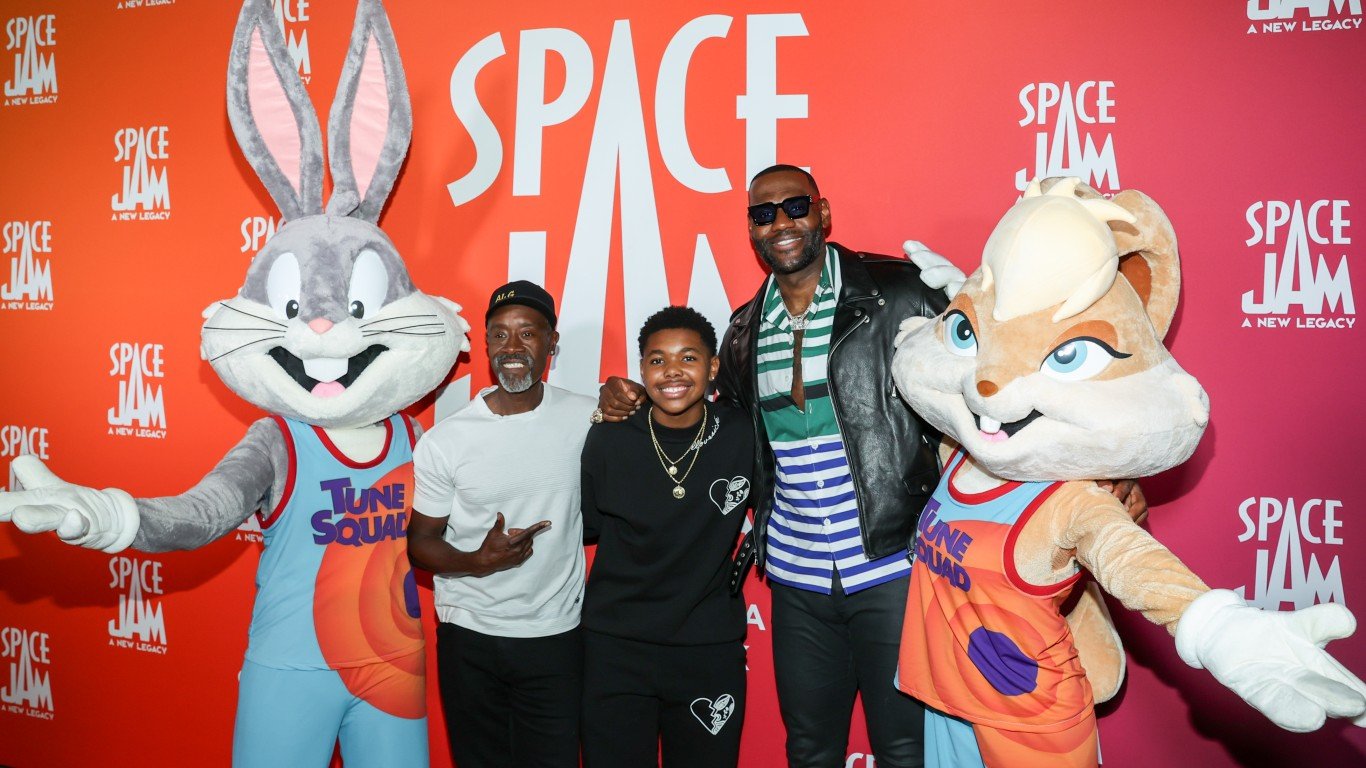
20. Space Jam: New Legacy
> Company: Warner Bros.
> Year introduced: 2021
> What it was: Film
This reboot of the original “Space Jam,” which starred Michael Jordan, is about a rogue artificial intelligence entity that kidnaps the son of basketball star LeBron James – who has to work with Bugs Bunny to win a basketball game. A poor script and James’s failing as an actor led to a colossal loss of $163 million.
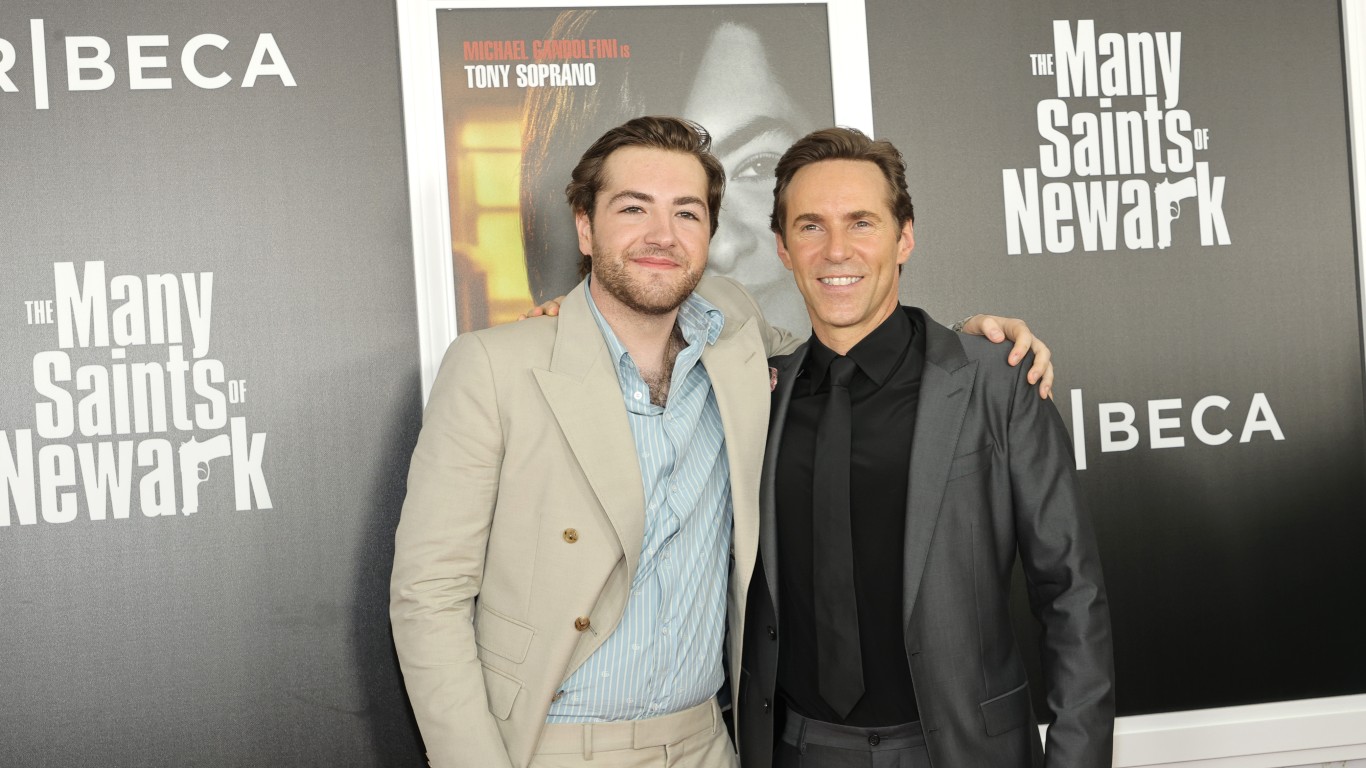
21. The Many Saints of Newark
> Company: Warner Bros.
> Year introduced: 2021
> What it was: Film
“The Many Saints of Newark” is the full-length prequel film to the runaway success of the cable television mob series “The Sopranos,” set in the boiling racial cauldron of Newark, New Jersey, in 1967. Warner Bros. believed bringing back younger versions of the characters that were made famous in the series would make the film a hit. It turned out to be a miss, grossing $8.2 million on a budget of $50 million.
Critic James Luxford said the movie was “by no means a bad film, it’s just an unnecessary addition to the legacy.”
[in-text-ad]
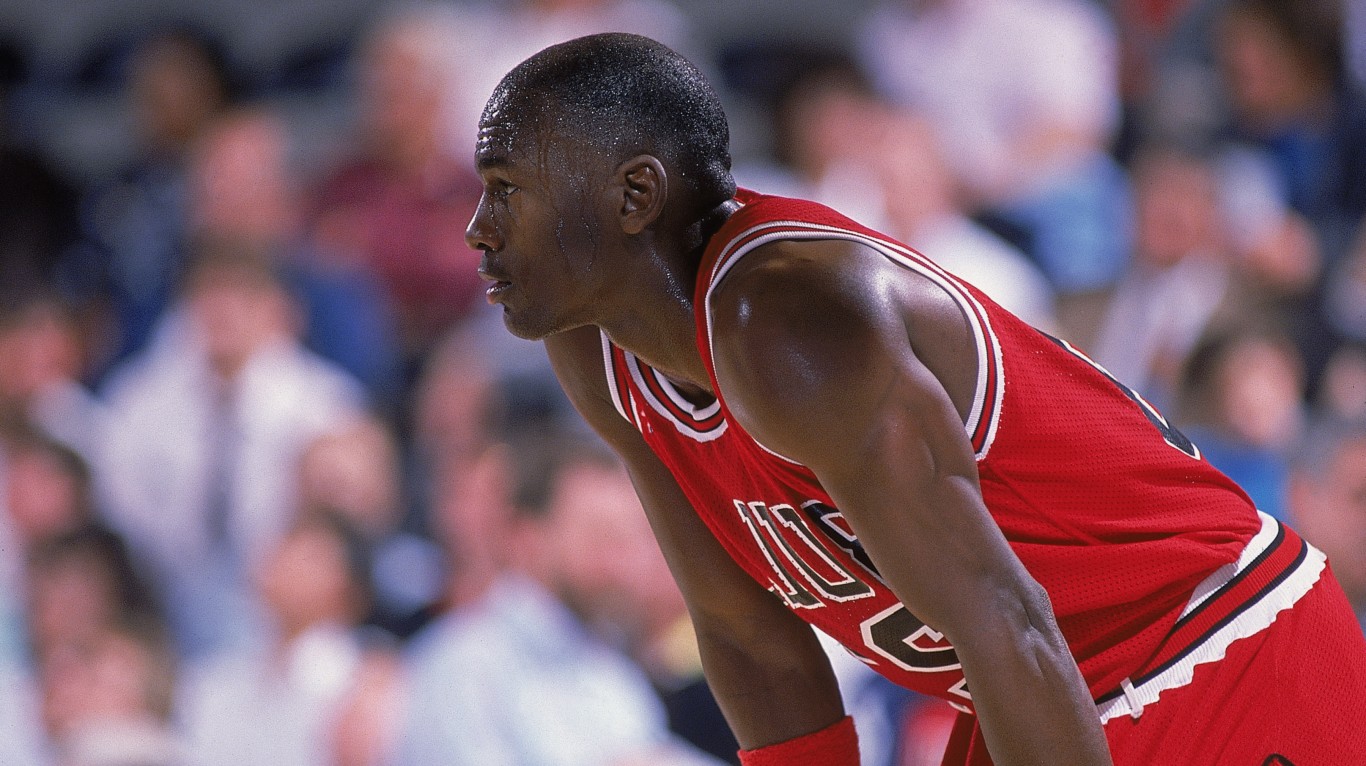
22. Air Jordan 2 Collabs
> Company: Jordan Brand
> Year introduced: 2022
> What it was: Sneakers
Jordan Brand’s marketing of original 14 sneakers worn by NBA superstar Michael Jordan have been among the best-sellers with sneakerheads. But not all have been successes. Exhibit A is the Air Jordan 2. Its appeal was hindered by the fact that His Airness barely wore the sneaker on the court in his second year in the NBA because he was hurt. Also, it was rumored that the mold from the sneaker was destroyed.
There have been a series of collaborations from companies like Union LA and Nina Chanel Abney, with both high- and low-top versions. Even so, collectors have generally shied away from the model.
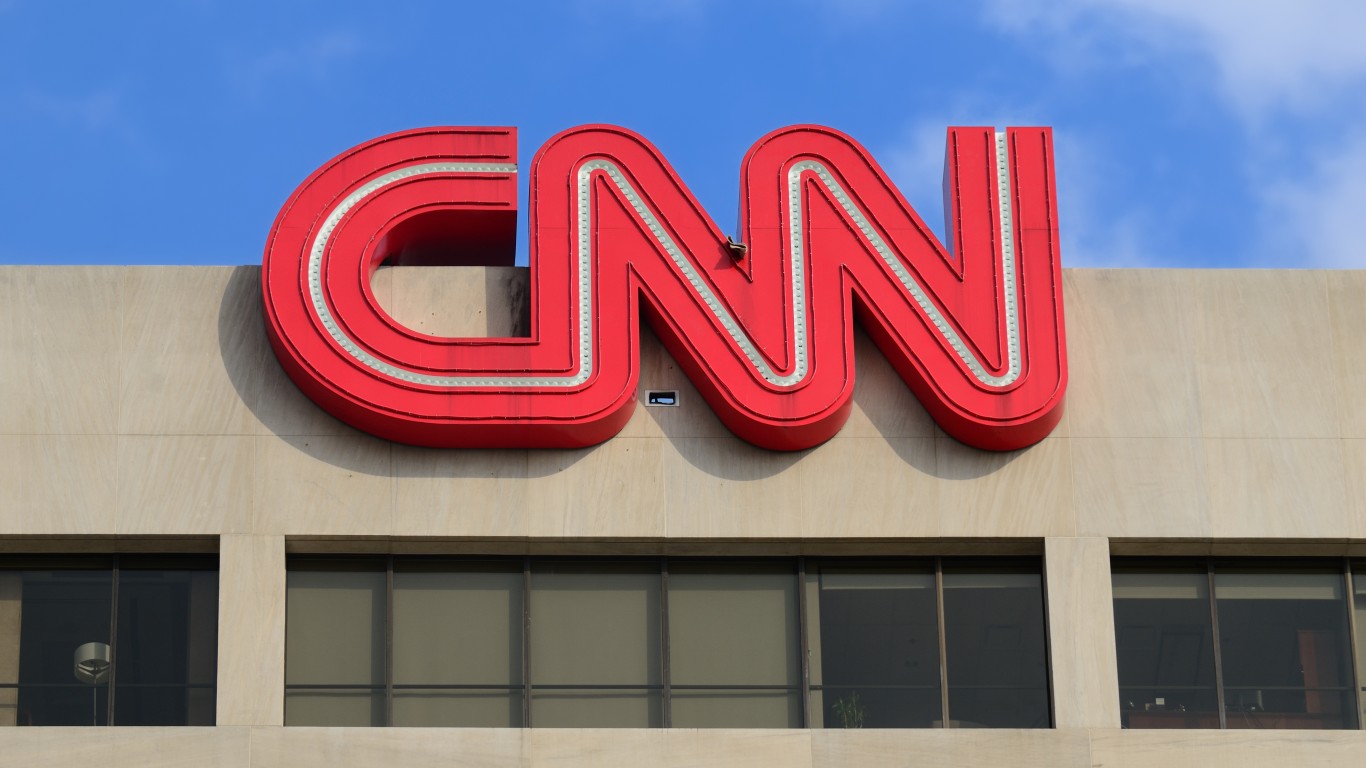
23. CNN+
> Company: CNN
> Year introduced: 2022
> What it was: CNN’s streaming service
Jeff Zucker, former head of CNN; Andrew Morse, CNN’s head of global digital business; and other leaders of the cable news network envisioned a platform similar to that of the New York Times – a subscription news product that would eventually include video, podcasts, and CNN’s interview and entertainment programming. They believed CNN had a global brand image superior to that of the Times.
After an encouraging opening, the viewership numbers began declining right after launch. Company executives expected CNN+ to reach 2 million subscribers after a year, but the new leadership saw the service’s early numbers as weak. The platform only lasted several weeks.

24. The Get Down
> Company: Netflix
> Year introduced: 2022
> What it was: TV series
This Netflix period series, set in New York City during the late 1970s, tracked the origins of rap and hip-hop. It had a lot going for it: Baz Luhrmann (“Moulin Rouge!,” “The Great Gatsby”) helmed the project. A pilot was co-written by Pulitzer Prize-winning playwright Stephen Adly Guirgis. Justice Smith played a young rapper and “Hamilton” Tony-winner Daveed Diggs portrayed the rapper’s older self. Hip-hop pioneer Grandmaster Flash consulted on the series. It added up to failure. Netflix canceled it after 11 episodes and a cost of $120 million. “The Get Down” was Netflix’s first show to be canceled after just one season.
[in-text-ad-2]
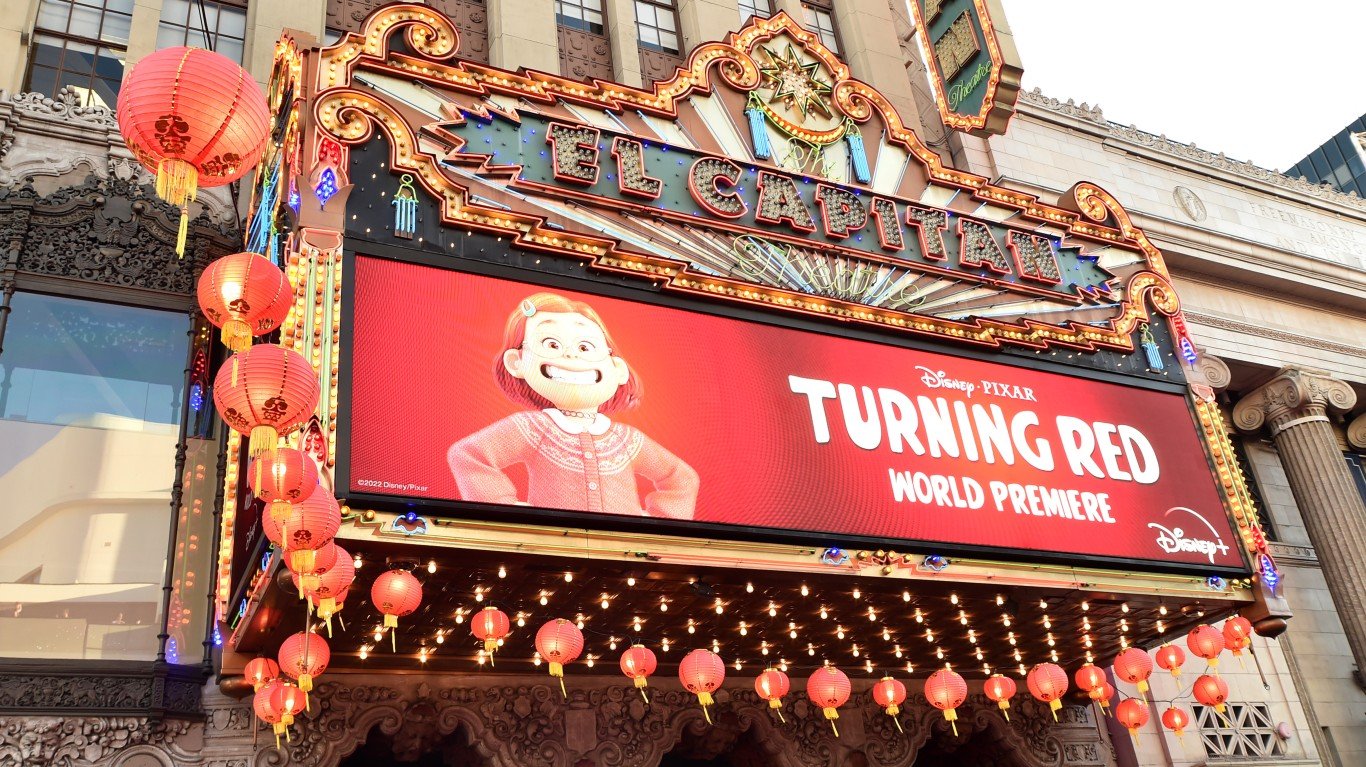
25. Turning Red
> Company: Pixar Animation Studios
> Year introduced: 2022
> What it was: Film
Meilin is a teenage girl torn between being a dutiful daughter and participating in the exuberance of her adolescent years. There’s a complication; whenever she gets too excited, she turns into a giant red panda. Despite a 95% Freshness score from Rotten Tomatoes critics, who called it “heartwarming, humorous, beautifully animated, and culturally expansive,” the film cost about $175 million and only brought in $20 million worldwide, a rare misfire for Pixar.
Sponsored: Want to Retire Early? Here’s a Great First Step
Want retirement to come a few years earlier than you’d planned? Or are you ready to retire now, but want an extra set of eyes on your finances?
Now you can speak with up to 3 financial experts in your area for FREE. By simply clicking here you can begin to match with financial professionals who can help you build your plan to retire early. And the best part? The first conversation with them is free.
Click here to match with up to 3 financial pros who would be excited to help you make financial decisions.
Thank you for reading! Have some feedback for us?
Contact the 24/7 Wall St. editorial team.
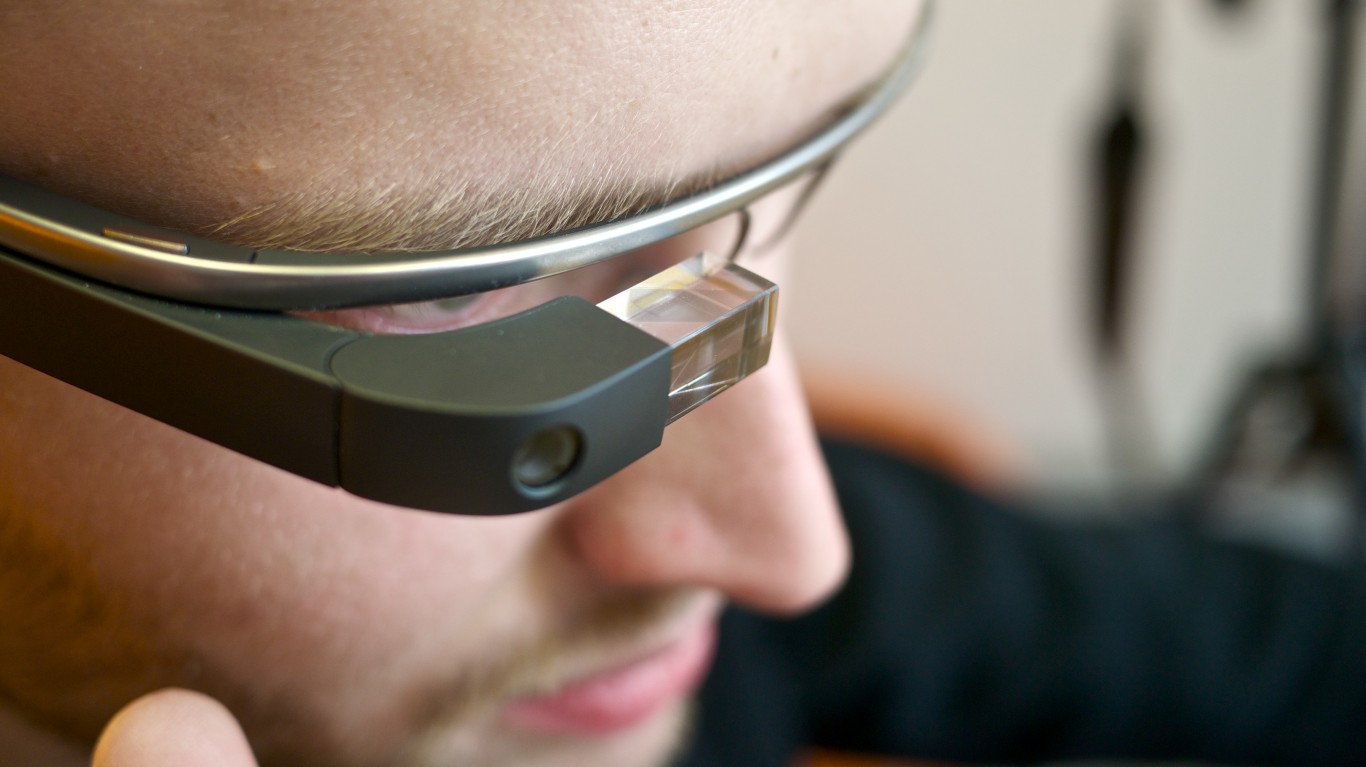

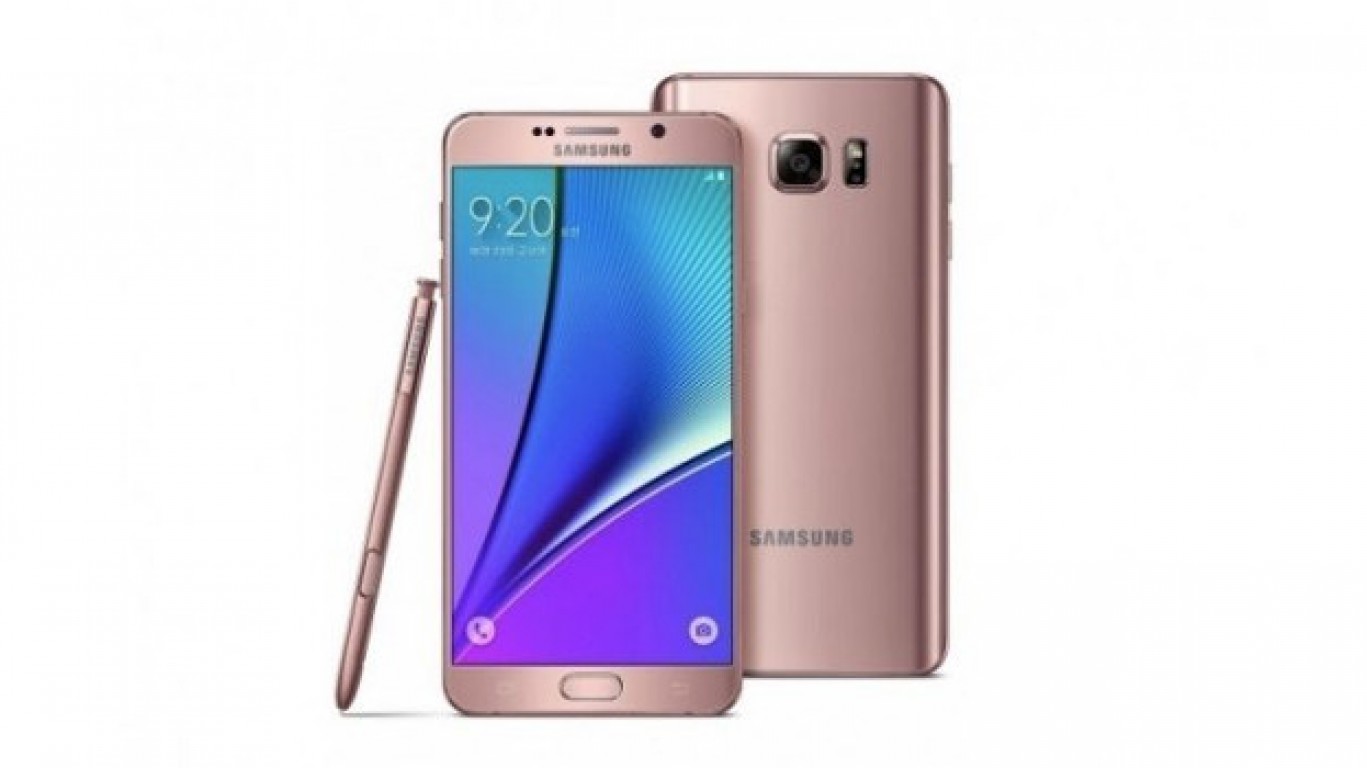
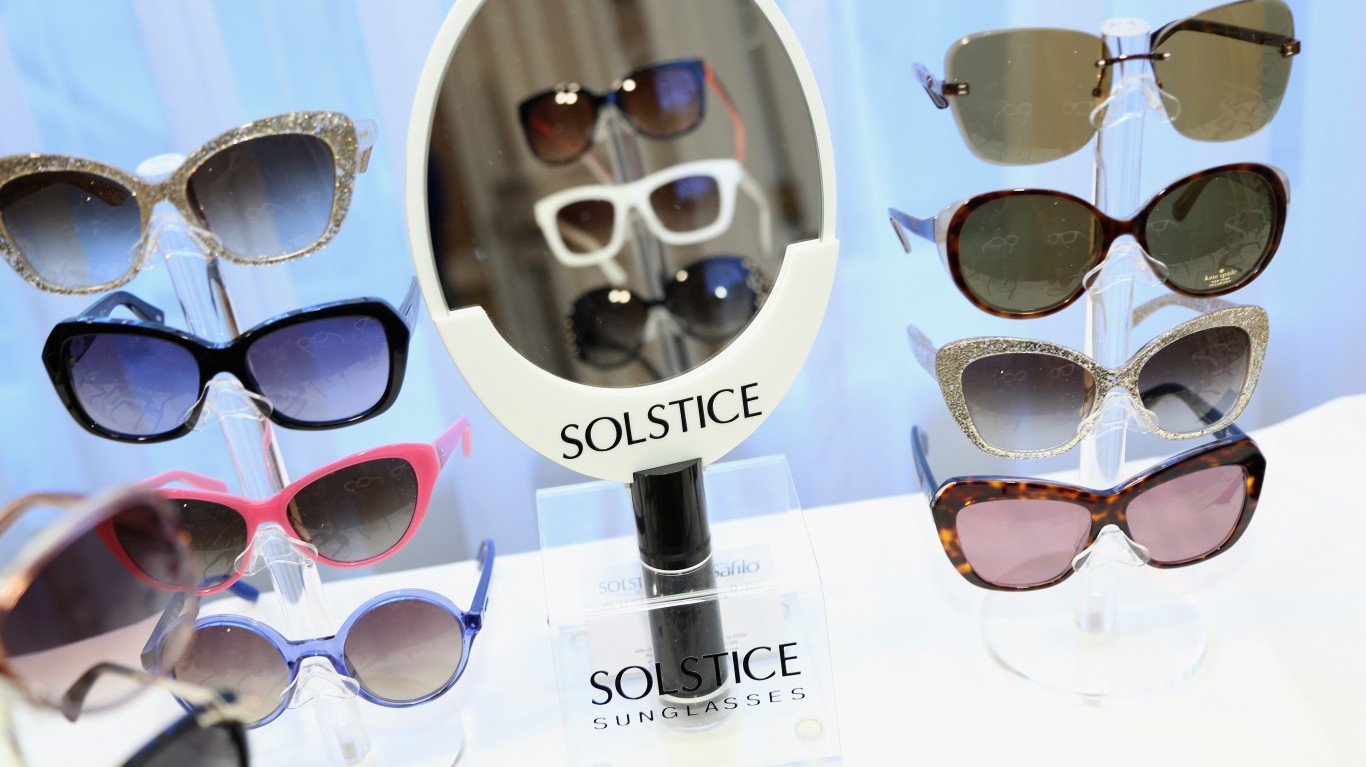 24/7 Wall St.
24/7 Wall St.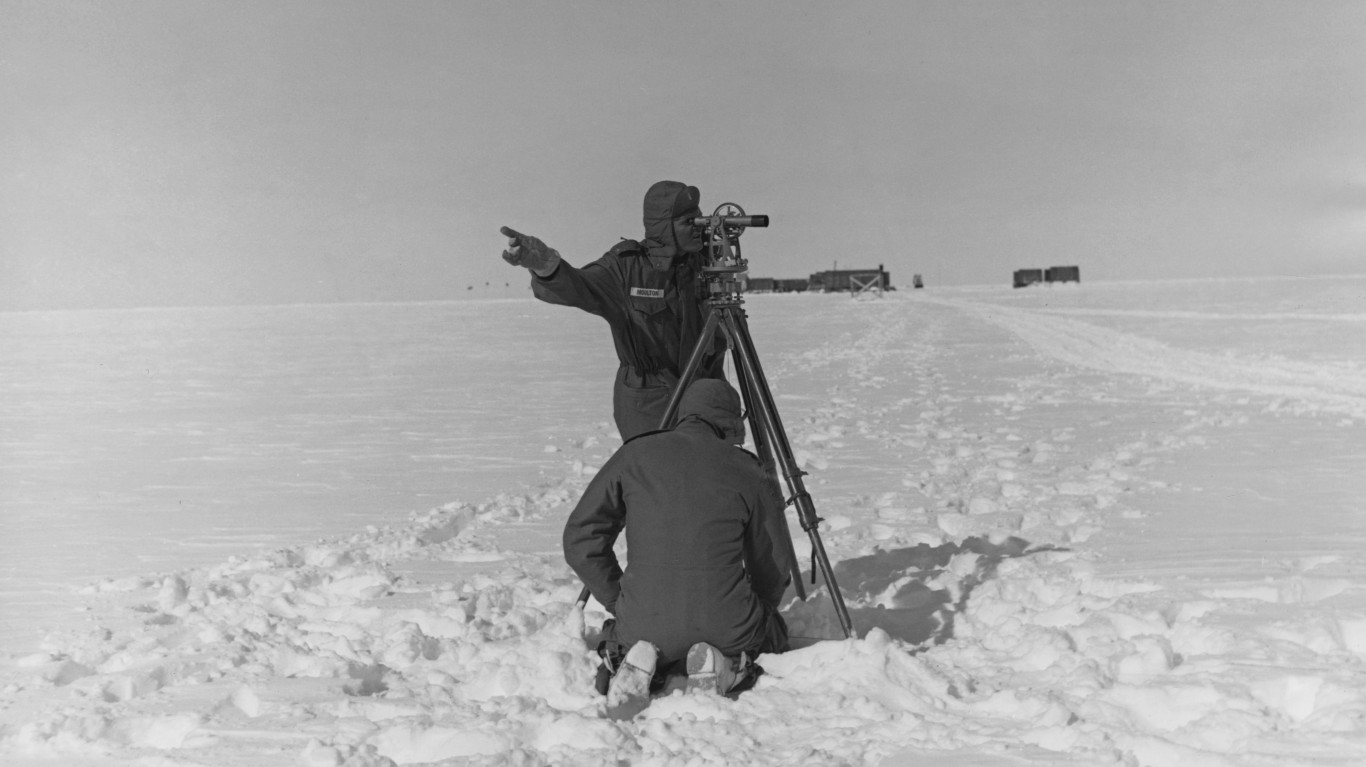 24/7 Wall St.
24/7 Wall St.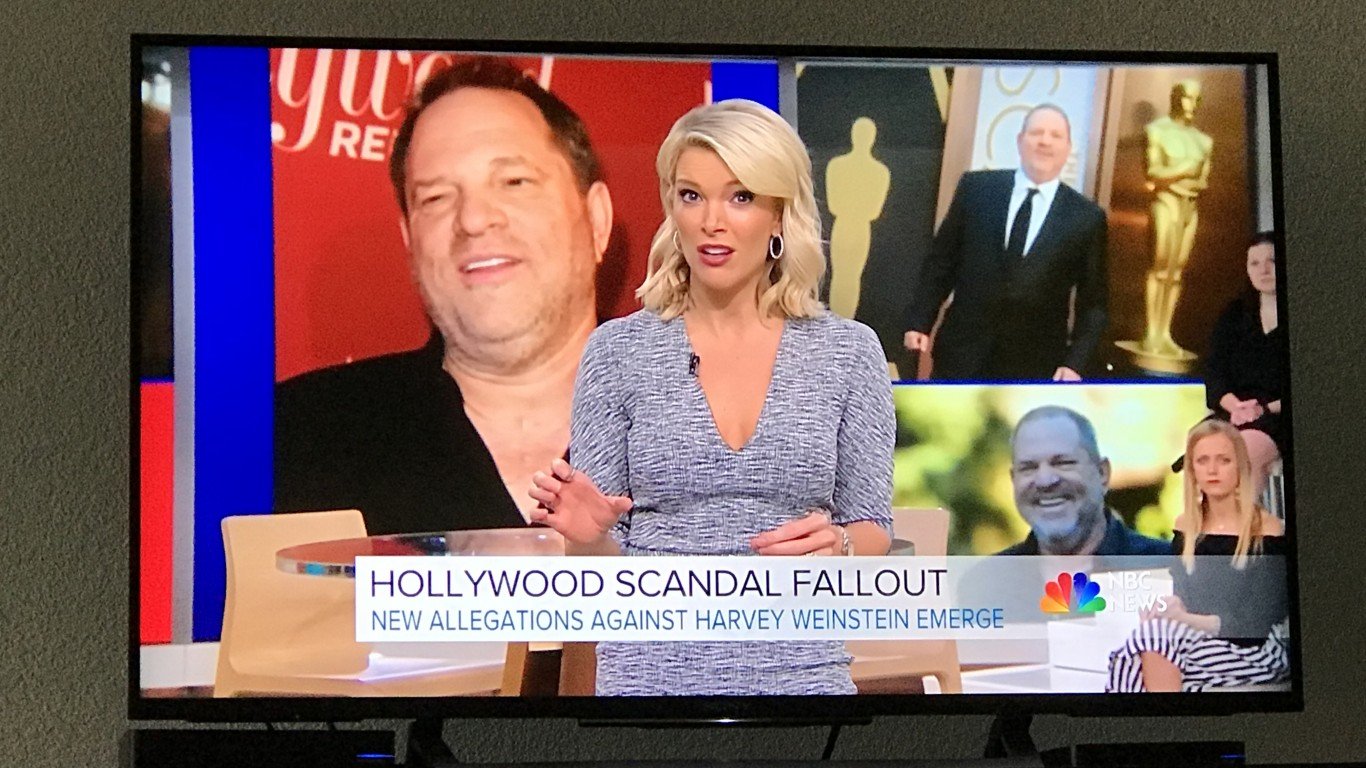
 24/7 Wall St.
24/7 Wall St.